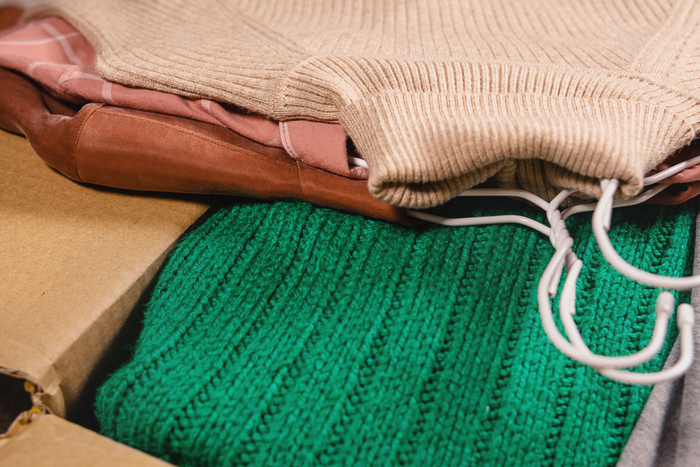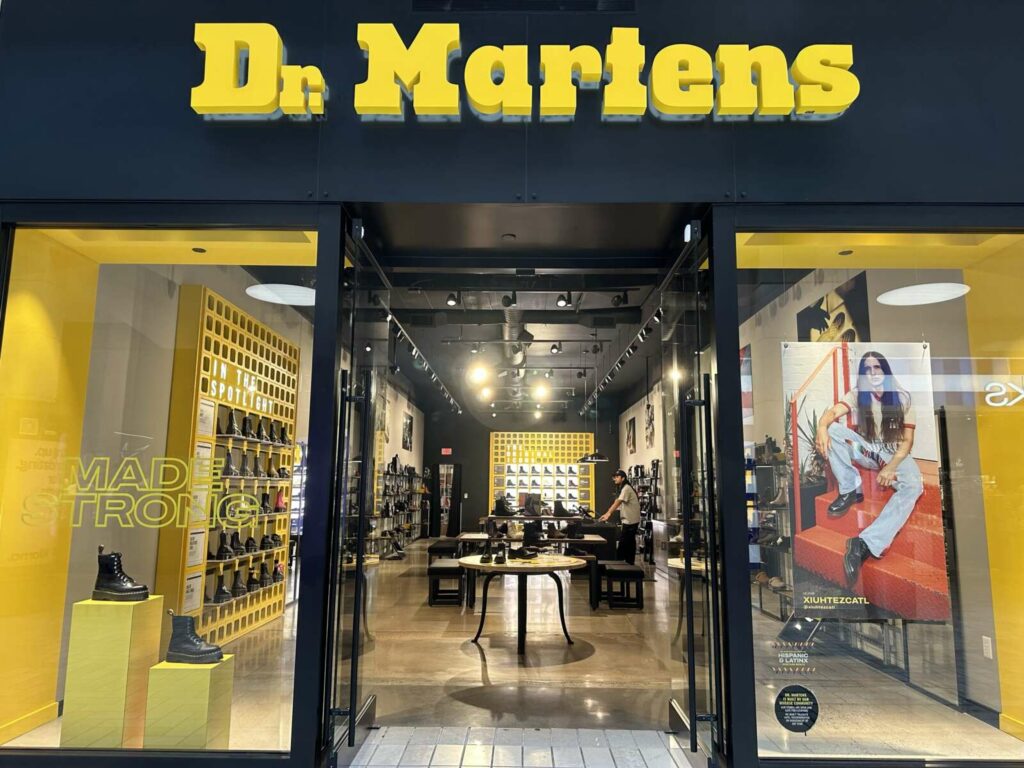It’s no real secret that fast fashion retail is not usually associated with the likes of recycled or second hand clothing. But in an age when consumers are drifting towards the resale market, these retailers are scrambling adapt to the rapidly-growing shopping trend.
The second hand fashion market has particularly boomed since the Covid-19 pandemic began, thanks to a consumer market driven by climate change awareness, cost efficiency and community. Amidst it all, concerns have emerged around the impact it is having on prices, sustainability and fashion retail business models.
The fashion retail industry – especially fast fashion – is already faced with numerous challenges, whether it’s controversial supply chains or being a huge contributor to carbon emissions and waste. It’s no surprise that fast fashion chains are now stepping up by introducing initiatives they hope would outweigh any caused complications.
As fashion retailers seek to be more relevant in consumers’ changing lives while mitigating the competitive threat of resale’s growth, the resale partnership trend is set to boom in the post-lockdown world.

Last month, Mahmud Kamani’s Boohoo Group launched a range of sustainability pledges in tandem with the Agenda for Change, to ensure all materials the online retail giant uses are “more sustainable” by 2030. The parent company of PrettyLittleThing, Debenhams, Boohoo and Karen Millen added that it would launch resale and recycling offers across all its brands by 2023.
Boohoo Group head of sustainability Rosie Howells said the firm was in active conversations with resale websites, and further details would be revealed in the next few months.
“The reason we’ve said more sustainable is because there are so many different materials that will be a part of that pledge – each will have its own preferred alternative, therefore we are setting better materials guidelines each year with associated thresholds,” Howells said.
This isn’t the first time Boohoo Group has dipped its toes into sustainability. In 2019, the online retailer launched a recycled collection called “For the Future”, which Nottingham Trent University art and design lecturer Stella Claxton said was “unlikely to address the problem of clothing waste”.

That same year, Asos introduced a sustainable products category called Asos Design Circular collection, featuring curated ethical products. This came shortly after Net-a-Porter introduced a Net Sustain category for environmentally conscious customers.
Meanwhile, Selfridges said it was looking at launching into product repair and resale as part of plans to radically improve its sustainability. The luxury department store said it was also exploring a move into “refill and rental” of some products as part of a commitment to change how customers shop in its stores by 2025. The proposals are part of the retailer’s new Project Earth sustainability initiative.
Selfridges also followed up partnerships with Depop and Vestiaire Collective with its new resale service Resellfridges. Vestiaire Collective itself opened its first ever permanent in-store destination with Selfridges in 2019, as part of an initiative to encourage shoppers to recycle by selling pre-owned luxury wear.
More recently, H&M Group, which has been investing in online second-hand fashion retailer Sellpy since 2015, said it would expand the service to The Netherlands and Austria. While not yet available in the UK, the Swedish fast fashion retail giant said Sellpy collects unwanted clothes from customers, before sorting through them to sell the goods on its own platform and giving customers 40 per cent of the proceeds.
With many fast fashion giants venturing into the resale market, it begs the question as to whether they risk losing their authenticity – or perhaps the core of their core fast fashion business model. After all, fast fashion retail is known for its rapid rate of production as well as cheap and trendy garments.
Samantha Mansfield, head of strategy at commerce agency LiveArea, said fast fashion retailers have little to lose from entering the resale market.
“Product prices are already low and business models are based around staying at the cutting edge of mass market fashion, with brands striving to achieve widespread appeal,” she told Retail Gazette.
“Only time will tell if this odd couple can last but consumers certainly want both”
“One of the biggest behavioural changes to come out of the pandemic has been a tendency for consumers to be more conscious about their impact on the environment.
“We’ve all heard stories about newly returned items being thrown into landfill, and with our recent research revealing one in five consumers would stop shopping with a retailer which followed such practices, it’s only natural that fast fashion retailers are working to become more sustainable.
“In fact, acting more responsibly will likely improve the brand value of fast fashion retailers as they demonstrate how they are working to reduce the amount of waste in the industry.
“Retailers will need to be transparent and clearly communicate the steps they are taking to avoid any accusations of greenwashing.
“Fashion and sustainability can work cohesively together, but it will require a fundamental shift in the way fast fashion retailers like Boohoo, along with their customers, view stock.
“What’s more, the UK government recently unveiled plans to support sustainable fashion in a bid to tackle waste in the fast fashion industry and hold manufacturers to account.
“Such developments may ultimately see more brands enter the resale market and kickstart additional green initiatives.”
Laura Morroll, senior manager at management consultancy BearingPoint, agreed. She said branching into resale should be seen as an opportunity for fast fashion retailers to extend the reach of their customer appeal and increase the number of reasons to shop with them.
“From a customer perspective, the addition of resale products to the overall offer fuels customer anticipation of ‘what will I discover’ and will drive up site visits and shopping frequency,” she said.
“Management of resale supply chains takes careful coordination and requires new capabilities (cleaning, reprocessing, repair) to ensure that customers can trust in the quality of the garment they are purchasing.
“H&M is a great example of a fast fashion retailer now driving a more circular retail economy, encouraging customers to deposit unwanted garments for recycling with it in return for future purchase discount vouchers.
“In late 2019, it invested in a 74 per cent share of Sellpy, which collect a bag of unwanted clothes from a customer, sort through them, and then sell the goods on its own platform, giving customers 40 per cent of the proceeds.
“It’s a ‘win, win, win, win’ for the seller, retailer, customer, and the environment.
“At the same time, H&M is actively investing in using recycled or sustainable fabrics in its own product development and throughout the pandemic have come out as actively supporting their factories and honouring their PO commitments in spite of sales being impacted by store closures.”
However, retail expert Nelson Blackley argued that consumers don’t think of fast fashion and resale or sustainability as being on the same page.
“Fast fashion, although very popular with many shoppers, is often seen as bad, reflecting a 21st century consumer ‘throw away’ society, whereas recycling and sustainability are considered as positive activities to practise,” he said.
“However, there is no reason why these current differing views by many about ‘fast fashion’ and sustainability can’t be changed around and reconciled over time.
“To do so, the ethics around how the clothes are manufactured needs to be quickly recalibrated along with improved and safe working and welfare conditions and pay for all these involved.
“But if these changes at the manufacturing stage of fast fashion were to be implemented and evidenced, then combined this with the reuse or recycling of the finished garment to extend its product use, and reducing waste and landfill volumes, could possibly be a viable combination.
“The challenge for many fast fashion retailers is how they can deliver these changes within their existing, and very successful, high volume/low pricing business models.”
Blackley added that the UK’s fashion sector was so competitive that retailers could afford not to embrace sustainability. He also said they were looking to quickly adopt more environmentally friendly processes on a continual basis.
“The challenge for many fast fashion retailers is how they can deliver these changes”
Meanwhile Lauren Lewis, founder and chief executive of the independent fashion retailer Glassworks London, said consumers were forcing the fashion industry to combine fast fashion and sustainability, and that retailers were therefore left without a choice.
“Only time will tell if this odd couple can last but the consumer certainly wants both – cheap leading trends without negative environmental impact,” she told Retail Gazette.
“Genuine sustainability relies on at least a slow down if not eradication of unnecessary consumption which is at odds with fashion.
“Fast fashion will likely lose many conscious consumers who will buy less but spend the same on more sustainable options.
“Though in the short to medium term, shallow starter initiatives will be enough to keep many fast fashion consumers returning to a largely unchanged model.”
Although Asos has introduced more sustainable materials in its product portfolio with a new collection called Responsible edit, arguably only a small portion of materials are recycled and made from renewable resources and many textiles remain highly damaging to the environment.
Consumers are now increasingly realising that the overproduction and overconsumption of cheaply made clothing isn’t sustainable and are therefore demanding more ethical and eco-responsible clothes.
The main challenge for fast fashion retailers now is to be genuinely transparent with customers on what many might see as a contradiction between actively promoting and encouraging fast fashion as well as fashion recycling/resale.
Fast fashion and sustainability could eventually go hand-in-hand, but no one said this would be easy.
Click here to sign up to Retail Gazette’s free daily email newsletter


















